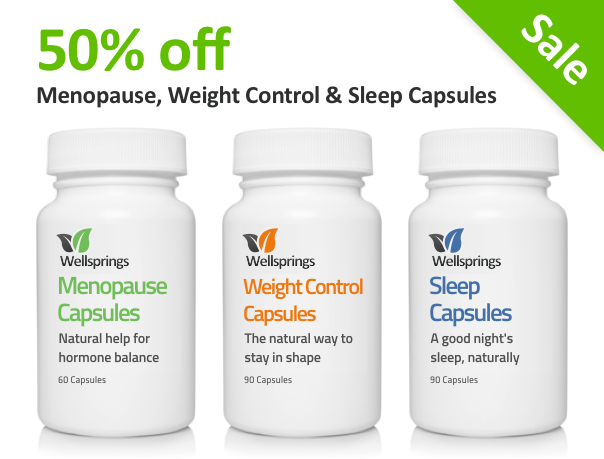10 Ways to Protect Your Heart
Women are twice as likely to die of coronary heart disease, the main cause of heart attack, as breast cancer in the UK.

It is not generally realised that women are more likely to be at risk for fatality from heart disease rather than cancer.
There are currently more than 3.5 million women in the UK living with heart disease. Sadly, 77 women die from a heart attack every day in the UK – around 28,000 women every year.
Researchers found women face a 20% increased risk of developing heart failure, or dying within five years after their first severe heart attack, compared with men.
So how can you best minimise your risk?
1. Take in calories and use them up!
Diet requirements are based on many factors, but for women at menopause it has been found that sticking to 1200 calories a day will help lose weight and stay heart healthy.
Of course you may need more or less depending on individual factors such as age, and level of physical activity, and if you increase your physical activity output you will burn more calories.
2. Eat more seeds, legumes, and nuts
Plant-based proteins and soluble fibre can be found in legumes like kidney beans and chickpeas. Nuts and seeds too are a good source of non-meat protein that helps you to feel full longer.
They have also been shown to decrease the bad cholesterol known as LDL.
3. Increase your fruit and vegetable intake
Fruit and vegetables are plentiful sources of vitamins and minerals as well as being low in calories and high in fibre.
They contain substances that help to prevent heart disease and many are particularly rich in vitamin C and in beta-carotene, which is a form of vitamin A.
These work as antioxidants in your body, helping to slow down or prevent atherosclerosis by reducing the buildup of plaque from cholesterol and other substances in the arteries.
4. Eat seafood
Seafood is a great source of protein that is low in saturated fat. Fish like mackerel and salmon are high in omega-3 fats which are good for your heart and increase your levels of good cholesterol (HDL).
It is a good idea to eat fish a few times a week, whether fresh, frozen or tinned.
5. Choose whole grains
Whole grains play a role in regulating heart health and blood pressure. They are a good source of fibre, as well as other nutrients.
Whole grains contain the entire grain kernel ― the bran, germ, and endosperm. Examples of whole grains include whole-wheat flour, bulgur (cracked wheat), barley, oats/oatmeal, quinoa and brown rice.
6. Eat eggs
Although eggs have had a a bad press they definitely have a role in heart health as they have vitamins A, B12, and E, as well as protein and selenium.
Though eggs have cholesterol, they have a minimal effect on blood cholesterol and most people who are at risk of heart disease can safely eat up to six eggs a week as part of their diet.
7. Reduce unhealthy fats
Limiting trans fats and saturated fats in your diet helps you to lower the risk of coronary artery disease and blood cholesterol.
Foods high in good fats include vegetable oils (such as olive, canola, sunflower, soy, and corn), nuts, seeds, and fish.
Perhaps surprisingly, peanut butter is rich in heart-healthy fats and is a good source of protein, so it can be a good option for vegetarians.
8. Steady with the salt
Too much salt in your diet can cause high blood pressure and that is a risk factor for heart disease. At menopause many women see an increase in blood pressure, often related to weight gain.
A lot of dietary intake of salt comes from processed foods so eating fresh foods reduces the amount of salt in your diet and avoid adding when cooking and serving food.
9. Read the labels & the menu!
Read the ingredient list and nutrient facts on all packaged foods – whether tins/frozen or ready meals. You also need to be aware of menu items that are likely to be a risk – and many restaurants do now offer information on nutritional content in their food.
Given that information whether in the supermarket or a restaurant you can choose foods with fewer bad ingredients like saturated fat, salt, and sugars.
10. Choose balance and variety
No food will, by itself, make your diet heart healthy. It is your overall diet that counts, so try to choose a wide variety of plant and animal proteins that are considered heart healthy.
You need to have a variety of food groups, including fruit, vegetables, whole grains, low-fat dairy, lean protein, fish, nuts, legumes and vegetable-based oils.
Helpful information:
Diet alone is not enough, lifestyle factors also play a part and if you have high blood pressure, high blood cholesterol, and are a smoker then those are all key risk factors for heart disease.
Unfortunately being overweight is also a high risk factor and at menopause that can creep up and be difficult to shift.
It is a time too when you might feel more anxious and that can lead to comfort eating, so for some tips to help with that read on.
https://anna.blog.wellsprings-health.com/7-tips-if-anxiety-is-making-you-put-on-weight/

















